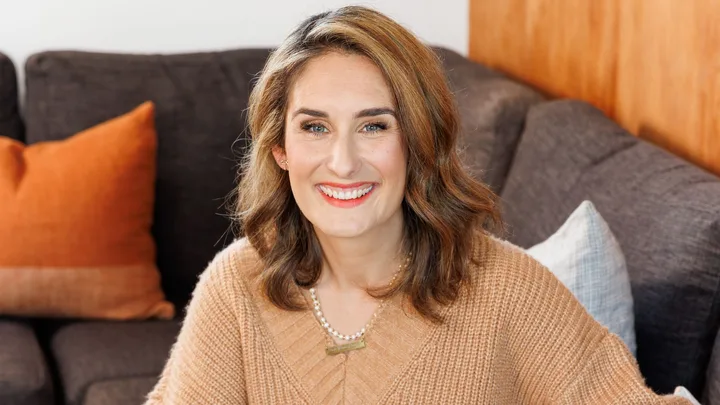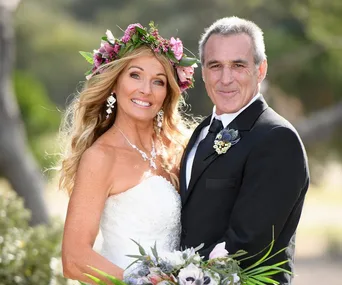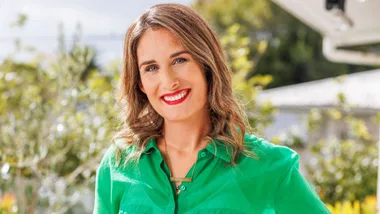Jo Robertson has built a career on what goes on between the sheets. While growing up, she experienced a number of unsafe sexual encounters. And although challenging, they sparked in her a curiosity about where people got their templates for what sex and relationships should be like. She also saw a therapist for her own sexual pain.
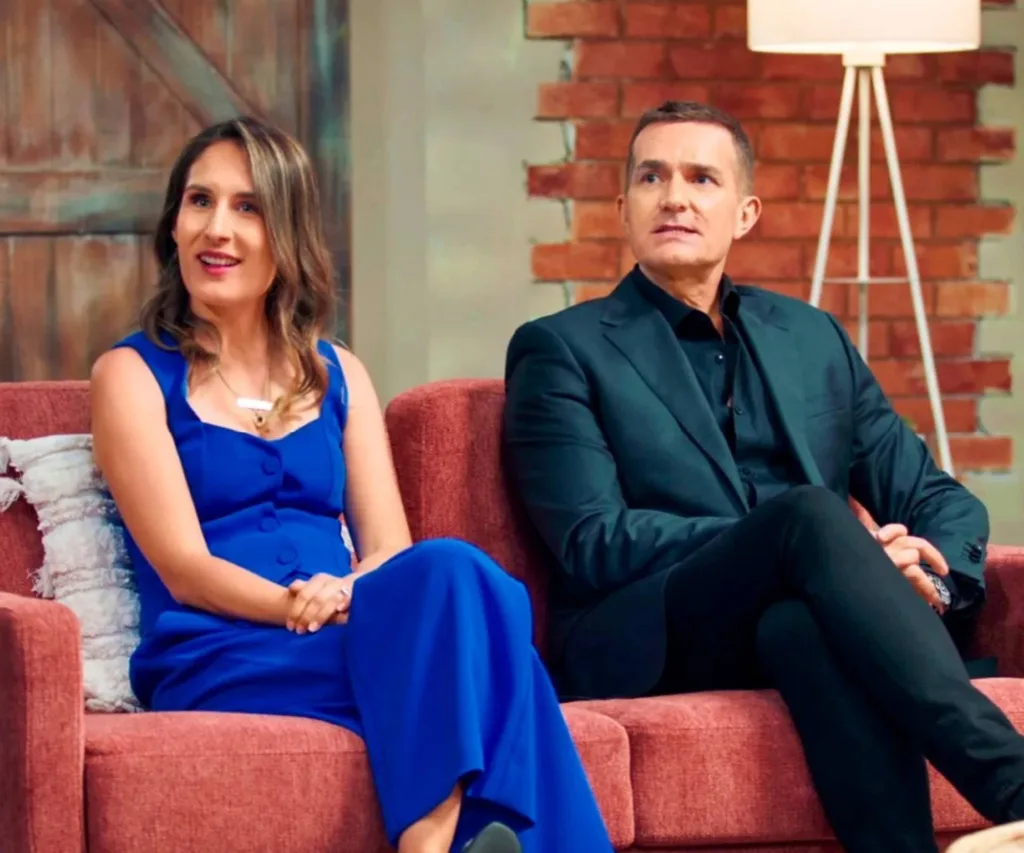
The 37-year-old, who appeared on Married at First Sight NZ as an expert, now specialises in relationships, infidelity and trauma. The mum-of-two is also a passionate parenting educator and public speaker. Her research into how accessible porn and illegal content have become available to children online has turned into a crusade to see change, and Jo regularly presents to government agencies.
As for Jo’s own relationship, she’s married to Dave, 39, CEO of Live Ocean, a marine conservation charity, and they live in West Auckland with their three sons, Jack, 11, Beau, 10, and Danny, seven.
Tell us about your childhood, living in the slums of Manila while your parents did development work there?
I was born in the Philippines and remember thinking I was Filipino. I grew up in an earth-floored house that was made of concrete with holes, no windows and a sheet covering the door. But I never had a sense of being at risk ever. Everything gets normalised. I remember playing on a rubbish heap – part of the game for me and my brother Tom was to run from our house, through this massive field, which was a rubbish heap and filled with snakes. The aim was to get to the top without a snake getting you. I had no reference point for poverty. I didn’t have a comparison. As children in the slum neighbourhood, we would play with rubbish. Those were our toys and I was just having fun.
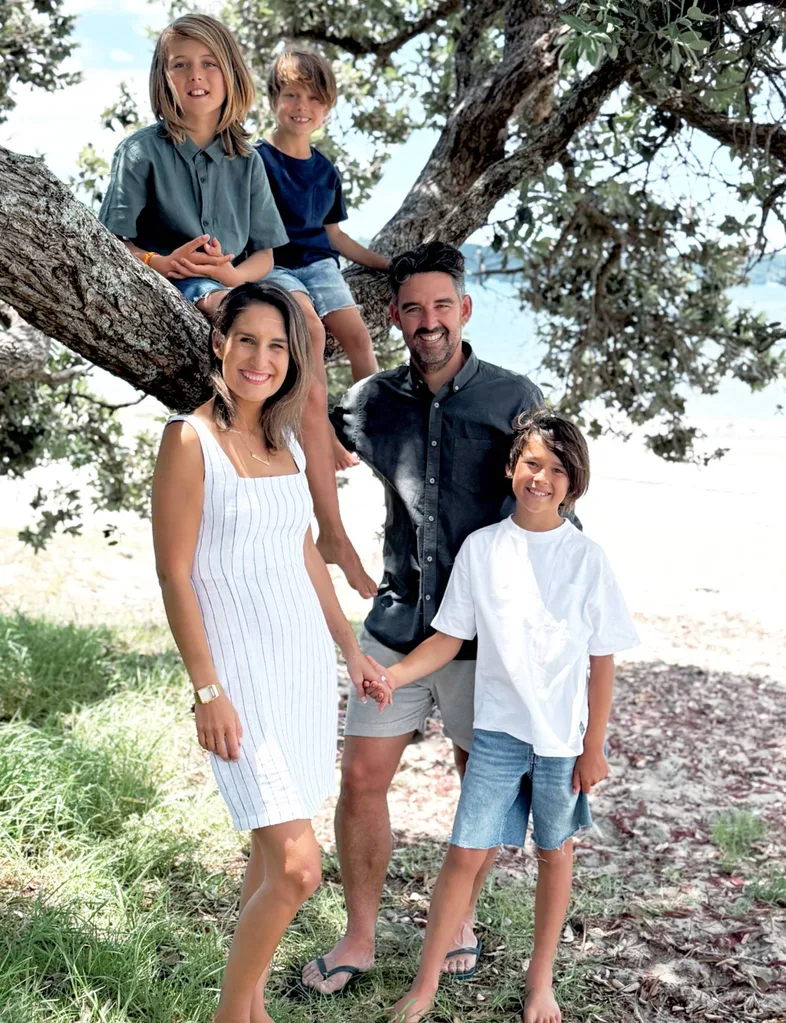
How did you feel moving back to New Zealand at six?
I was really confused and felt like I was moving to a foreign place. Tagalog was my first language, so I was more fluent in that than English. Starting school in Auckland, the firefighters visited one day and they spoke normally to everyone else, then really slowly to me. I was so annoyed.
Did that experience instil in you a desire to make a difference in the world?
Yes, very strongly. There were clear expectations, spoken or unspoken by my parents, that you’re on this planet to help it and love others. It’s like our family business!
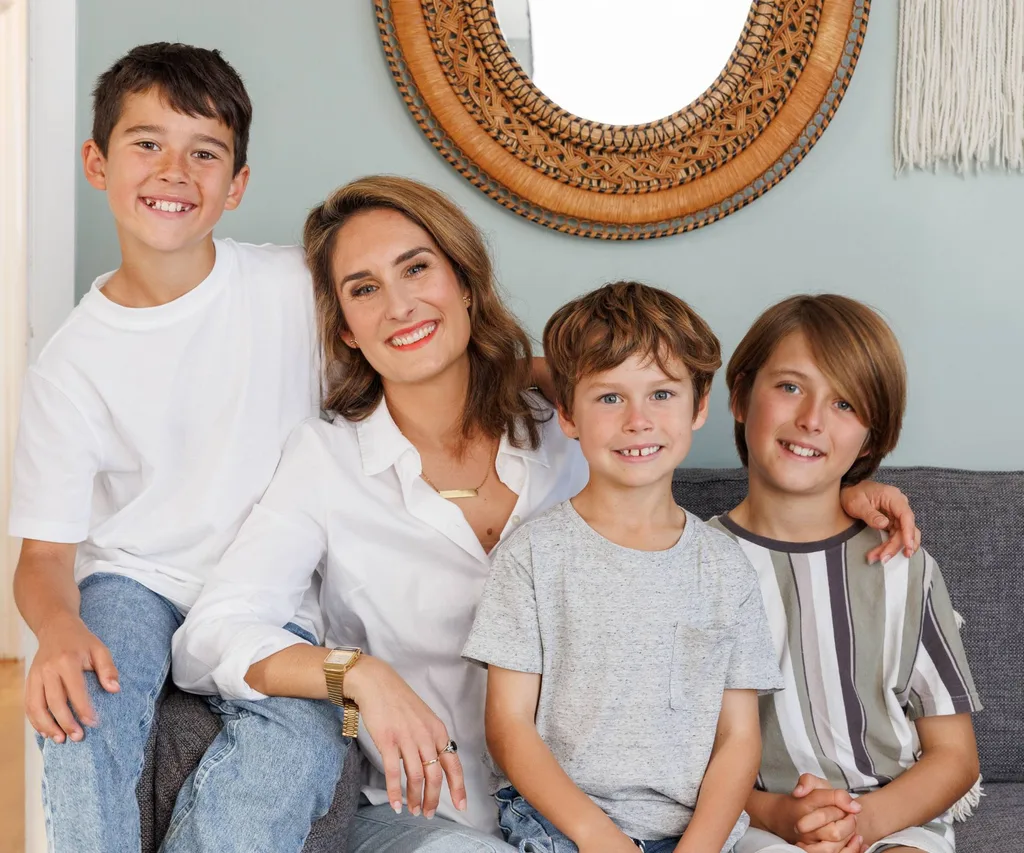
Do you remember telling them you wanted to be a sex therapist?
Actually, Mum told me to be one! I originally trained in politics and thought I’d try to become the prime minister and then trained to be a counsellor. I was pregnant with my middle son and was painting his room with Mum.
She said, “If you’re studying for your Masters, it’s got to be something you’re interested in because you’re going to be so tired. I think you should study sex as a way to help people. You’ve always talked about it with friends – you’re always reading books about it.”
Growing up, what were your parents like at talking to you about sex?
They were both so great, really transparent and it never felt taboo. They used to do this thing in our house where us kids were given Vivid markers and we could write whatever we wanted on the walls of the toilet. It could be a quote or a question and we would respond to each other on the wall. It felt fine to put anything on about sex or different ideas.
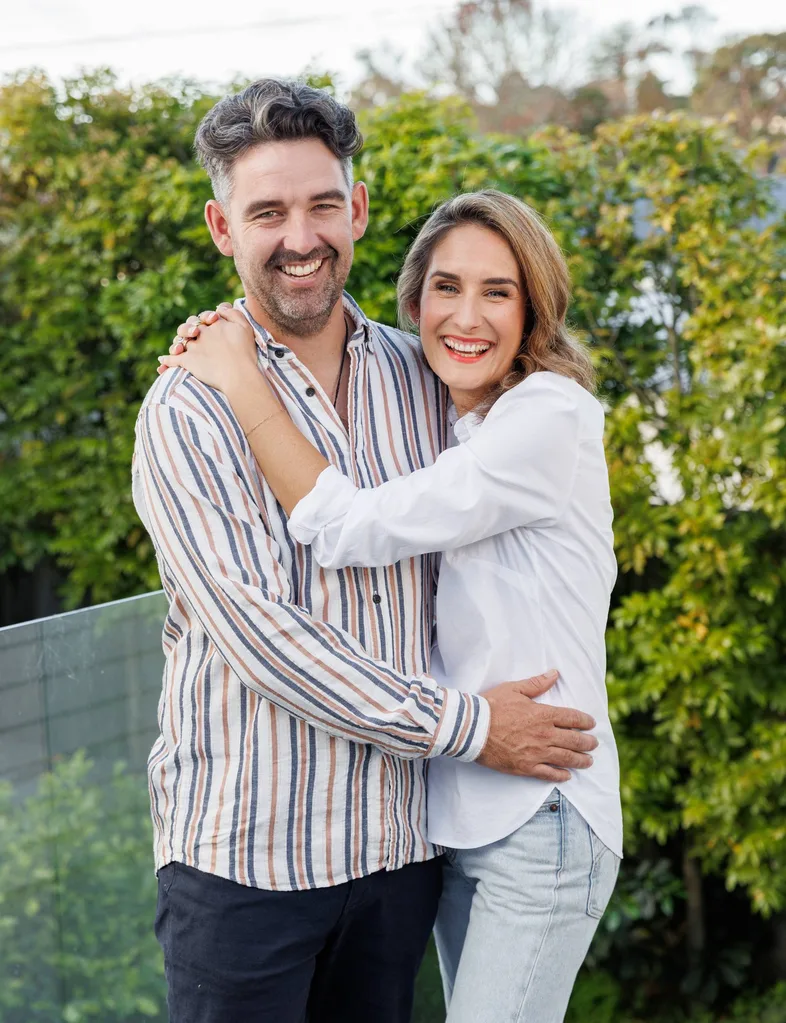
What’s the top three reasons clients see you for?
Infidelity, betrayal, mismatched libidos and female sexual pain. Is that what you set out to specialise in? I wanted to work in female sexual pain because that had been part of my story and I had received help from a sex therapist. And it was so transformative. But after having so many couples approach me with their infidelity experiences, I had to do specialist training. I could see how deeply traumatic it was for people.
Are you comfortable sharing about the sexual pain you mentioned you went through?
Yes, when I first started having sex, it was very painful. I don’t know if it was explicitly said or just what I thought I should do, but the messaging I got was that it would just get better with time, so keep trying. And what I know now, and what I see with clients is that actually just makes it worse. The pain is reinforced the more times you experience it and it’s harder to recover from.
I thought, “I don’t want this to be the rest of my life.”
I saw a sex therapist who recommended a pelvic floor physiotherapist. Over a year, I was able to retrain both my brain and a set of muscles that had had a trauma response. I thought this must be happening to so many other women who think it’s just the lot given to them.
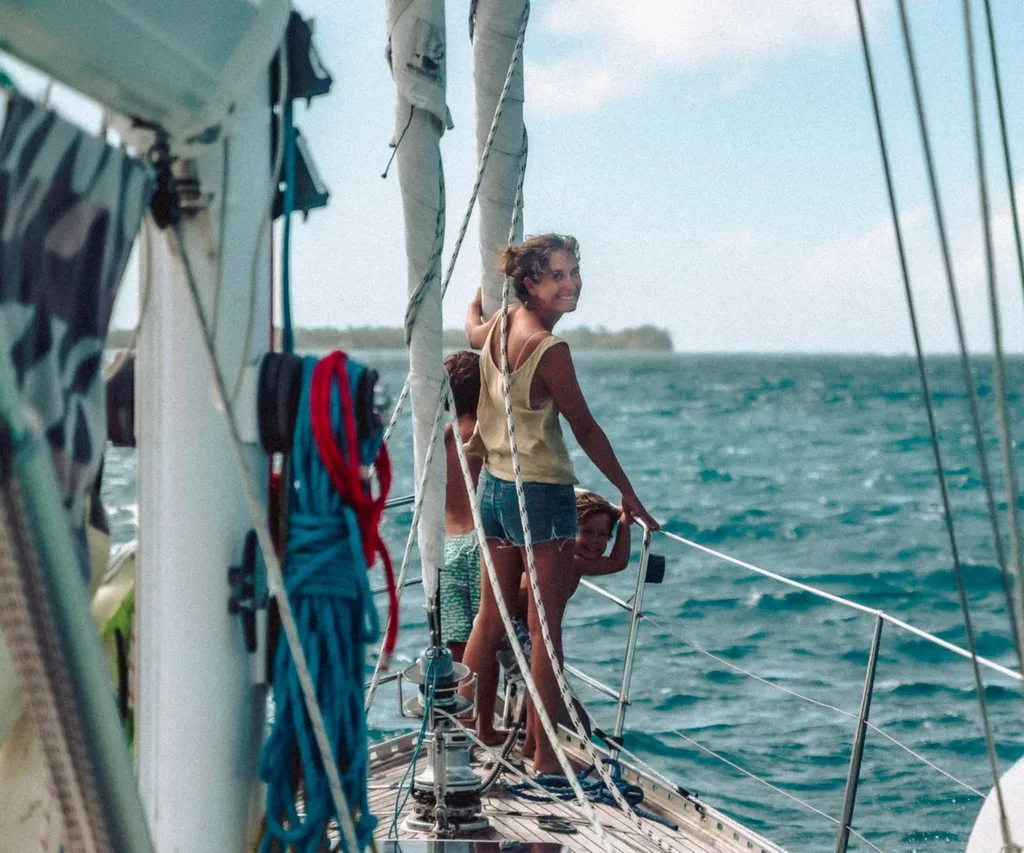
Pain during sex happens for a variety of reasons, doesn’t it?
Yes, being postpartum, perimenopause or having endometriosis are the classic ones. And a lot of women think they have to push through for the sake of their partner. But you have to treat it in order for it to stop and retrain the brain to not feel obligated to keep having sex. The psychological barrier of doing it out of duty is the worst possible thing for your body because it shuts down.
What’s a myth you’re passionate about busting?
That infidelity is your fault. Infidelity is rarely because of a lack of sex or what you look like. You could have the most awesome, perfect partner who’s doing all the things sexually and their partner could still have an affair.
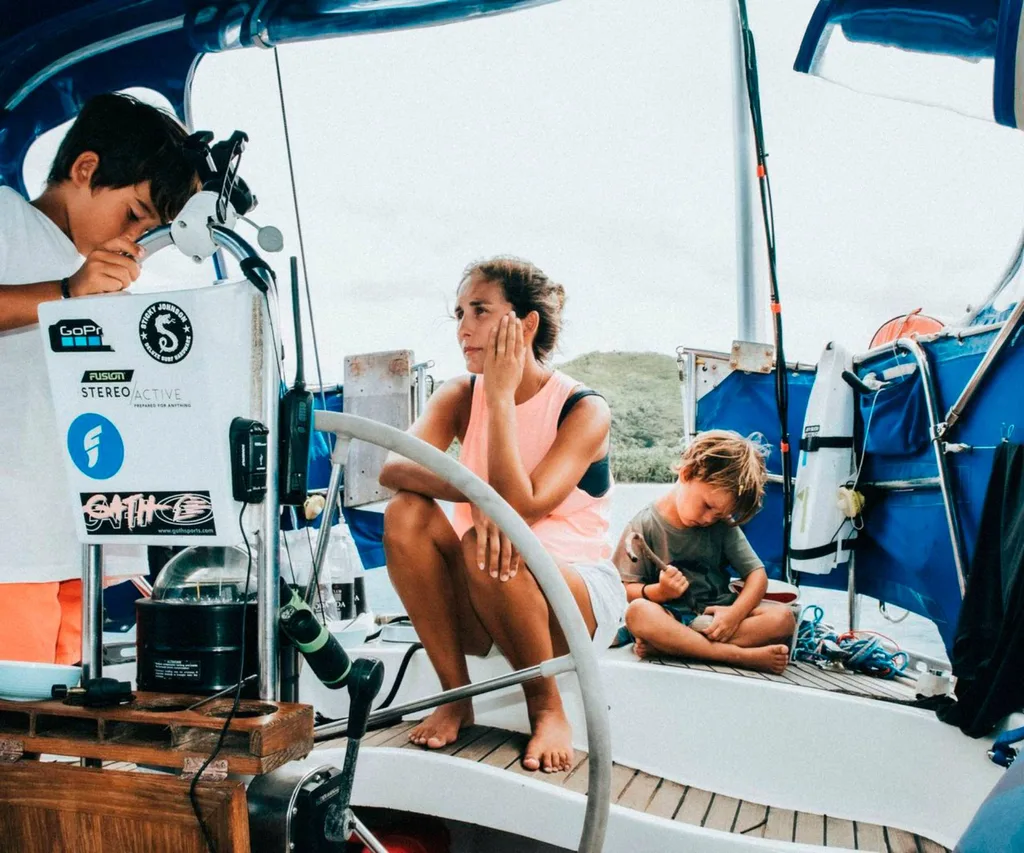
You’ve just celebrated your 15th wedding anniversary. Tell us what Dave planned?
I said to him, “We’ve got two days without the kids, can you be in charge of what we do?”
And another friend told him I’d planned a very sentimental gift for him and that he needed to really step it up. I didn’t know he was going to do something as epic as hand me 15 cards, each with a surprise activity on it – a walk in nature, shopping, bowling with friends. Share a core value you both have. Before we had kids, we discussed ways of wanting to expose them to other ways of living, so that they didn’t grow up in a bubble. We saved for years so we could go and live in another culture for a few months. Dave’s a strong sailor, so we decided to buy a boat, sail to Fiji and live on it, just after Covid hit in 2020. We visited the remote villages. Last year, we all went to Sri Lanka for a month. I feel like our boys find commonality with kids from other cultures wherever we go. There’s not a barrier there.
Is the Netflix show Adolescence reflective of what’s happening for Kiwi kids?
Definitely! Our boys are increasingly vulnerable to really radical ideology around women and relationships, spread largely through gaming platforms and YouTube. I think we’re more vigilant talking to our girls about safety than we do our boys. The rates of boys being exploited and being impacted are growing at a faster rate, and we’re not intervening.
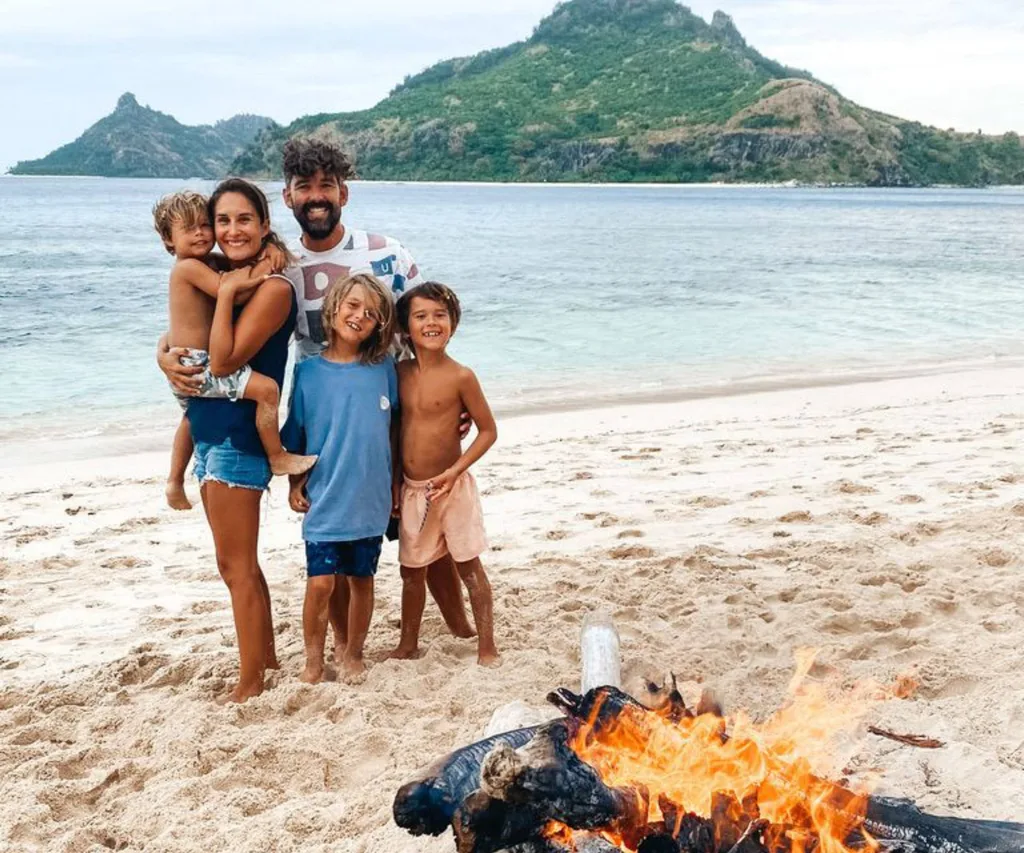
Are there any other issues that parents need to be talking about with their teens?
We have a real issue in New Zealand with strangulation during rough sex. Young people, through research, say that’s because of what they’ve seen online – not just on porn sites but social media platforms. We need to clearly say to kids, “Don’t choke anyone during sex,” and, “It’s not okay to let someone choke you during sex.” It’s a crime in New Zealand and incredibly dangerous. But high school teachers are unlikely to say that in the classroom. It’s only parents who are going to do that.
Is there a TV show that shows a good example of consent?
A great one is Normal People. In the teenagers’ first few sexual encounters, the guy asks questions the whole time and it’s not awkward. A lot of sexual harm happens because we’re not comfortable asking, “Is this all right for you? Can I do this?” or answering them. As parents, we definitely want to be talking about consent early and often. We think about consent being for explicit touching but actually, it’s also for micro-touches, such as if you put your hand on someone’s leg.
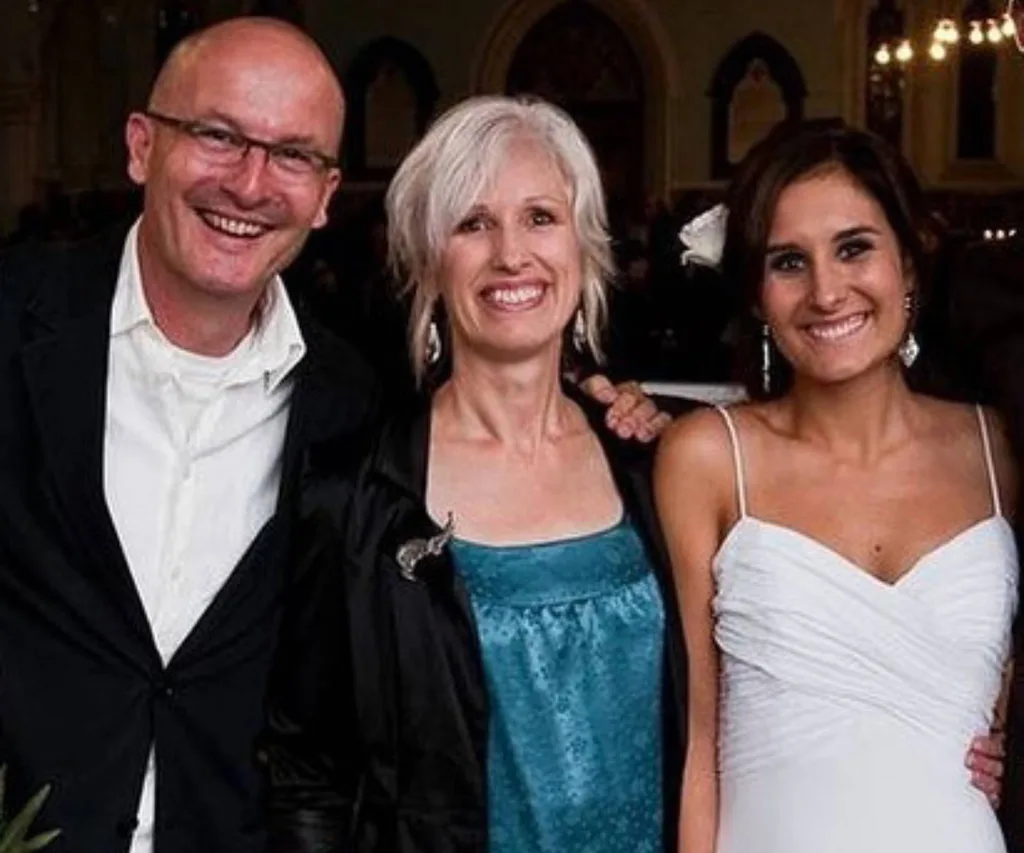
What did you learn being involved as an expert on MAFS?
The biggest take-home point for me was the power of attraction and that you can’t manufacture it or predict it.
Finally, is there something people might be surprised to know about you?
I’m very socially anxious. I’m really good in front of a group, but struggle to be in it
As told to Fleur Guthrie For more info, visit jorobertson.org or for parents wanting a guide for all things screens, safety and sexual wellbeing, visit trickychatsparenting.com
